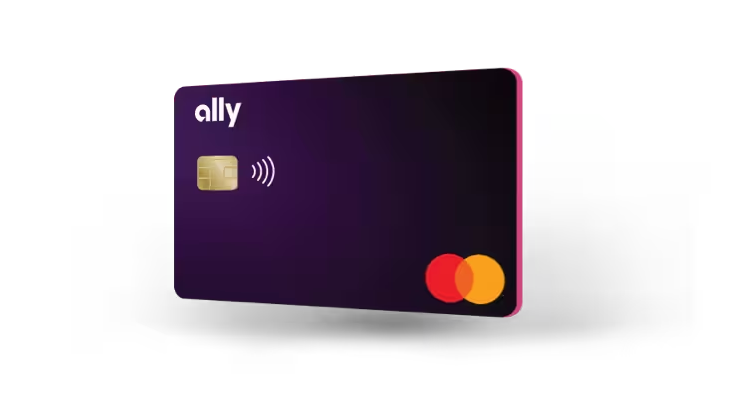Tips to Avoid Debt and Manage Credit Card Balance Efficiently

The Importance of Effective Credit Card Management
In today’s economy, where digital payment methods, such as credit cards, dominate consumer spending, mastering credit card management has never been more essential. The convenience of swiping a card can often lead to unintended overspending, a trend that ensnares many into a distressing cycle of debt. This can severely impact financial stability and personal well-being. By grasping the complexities of credit card usage, consumers can reclaim control and construct a healthier financial future.
Startling Debt Statistics
The numbers speak volumes—as of 2023, total U.S. credit card debt surpassed $930 billion, a staggering figure that highlights a collective reliance on borrowed funds. Alarmingly, around 60% of Americans find themselves in the cycle of carrying credit card debt month after month. This situation can be particularly dangerous, especially considering that the average credit card interest rate hovers around 20%. When balances remain unpaid, they accumulate interest rapidly, making the debt even more challenging to manage.
Strategies for Successful Credit Management
Understanding the financial landscape is critical, but employing practical strategies can truly empower consumers. Here are several effective tips to help you manage your credit card balances:
- Track your spending habits: Utilize mobile apps or budgeting tools to monitor your expenditures. By categorizing your spending, you identify areas where you might be overspending, such as dining out or impulse shopping.
- Create and stick to a budget: Establish a realistic monthly budget that considers your income and essential expenses. This will help minimize discretionary spending on credit cards. Many people find success by prioritizing needs over wants, thereby reducing reliance on credit for non-essential purchases.
- Make timely payments: Set reminders for payment due dates or enroll in automated payments to avoid late fees and interest charges. Even making minimum payments on time can prevent the debt from spiraling out of control, while consistently paying more than the minimum significantly reduces interest accrued over time.
The Path to Financial Control
By implementing these strategies, you not only improve your credit card management but also enhance your overall financial well-being. The challenge is not merely to survive in a consumer-driven society but to thrive despite its pressures. Consumers empowered with knowledge and practical tools can effectively navigate their financial journeys, ultimately paving the way toward a debt-free future. Stay informed, stay proactive, and take charge of your credit card use—your financial health depends on it.
DISCOVER: Click here to learn how to apply successfully
Proactive Approaches to Preventing Debt
Debt is often a creeping adversary in personal finance, and the first line of defense against financial turmoil is awareness. Understanding the nuances of credit is crucial; for instance, each credit card comes with its own set of interest rates, late fees, and payment schedules that can dramatically affect one’s overall financial picture. Many individuals fall into the misconception that credit represents available cash. This misunderstanding can lead to spending beyond one’s means. A common scenario is when someone regularly dines out, buys new clothes, or indulges in entertainment using their credit card without realizing how these small expenditures can culminate into significant debt.
Furthermore, prioritizing financial literacy also plays a vital role in escaping the pitfalls of debt. Many consumers lack a fundamental understanding of key financial concepts such as credit scores, various interest rates, and the long-term implications of different loan terms. For instance, many people might not realize that even a few late payments can substantially decrease their credit score, which influences their ability to secure affordable loans in the future. Financial education can transform a consumer’s perspective on credit: a well-informed individual understands that timely payments can enhance creditworthiness, ultimately leading to better interest rates and borrowing terms in subsequent transactions.
Effective Tips to Keep Debt at Bay
Implementing strategic measures can significantly reduce the likelihood of accruing debt. Consider the following practical tips:
- Limit the number of credit cards: Although the allure of rewards programs and cashback opportunities can tempt many, maintaining a smaller number of credit cards simplifies expenses, making it easier to manage payments and reducing the temptation to overspend.
- Utilize credit wisely: Aim to maintain a credit utilization ratio of no more than 30% of your overall credit limit. This practice not only helps in maintaining a favorable credit score but also serves as a deterrent against accumulating unmanageable debt levels.
- Set specific financial goals: Clear objectives can channel spending habits effectively. Whether it’s saving for a family vacation, a down payment on a home, or an emergency fund, defined goals prevent impulsive financial decisions and encourage a culture of saving.
- Review statements regularly: Dedicate time each month to thoroughly inspect credit card statements. This will not only keep you informed about your spending habits but will also help you catch unauthorized transactions early, minimizing potential losses.
By embracing these proactive strategies, individuals can become responsible credit users and build a firm financial foundation. It goes beyond simply avoiding debt; it’s about cultivating a lifestyle that prioritizes smart spending and financial responsibility. Emphasizing financial education and establishing personal accountability not only empower consumers but also enable them to make informed decisions that support their long-term financial aspirations. In a nation where financial literacy remains a pressing issue, fostering these habits can lead to a more secure and prosperous future. Engaging in continuous learning about personal finance is not just necessary—it’s a vital tool for navigating the complexities of modern monetary life.
LEARN MORE: Click here for easy steps to apply
Strategies for Managing Credit Card Balances
Managing credit card balances efficiently is an essential component of maintaining financial health and avoiding debt. The complexity of credit cards can often lead to confusion, but implementing systematic strategies can transform potentially overwhelming tasks into manageable ones. Below are some key methods to empower individuals in their pursuit of financial stability.
Creating a Comprehensive Budget
A detailed budget is more than just a list of expenses; it’s a roadmap to financial freedom. Start by calculating monthly income, followed by a meticulous breakdown of necessary expenses, savings, and discretionary spending. Utilizing budgeting tools or apps can streamline this process, allowing individuals to visualize their financial standing in real time. According to a study by the National University of Singapore, consumers who adopt a budget are significantly less likely to incur debt compared to those who don’t plan their finances. By adhering to a budget, one can set aside funds for credit card payments, thus avoiding interest accumulation through late fees.
Establishing an Emergency Fund
Life is unpredictable, and one of the most effective ways to minimize debt is by having an emergency fund. Financial advisors typically recommend saving at least three to six months’ worth of living expenses. This financial cushion can prevent the need to resort to credit cards in catastrophic situations, such as medical emergencies or unexpected job loss. By prioritizing the establishment of an emergency fund, individuals can deter themselves from falling into the debt trap during difficult times.
The Debt Snowball Approach
For those already managing credit card debt, the debt snowball method has gained popularity as an effective repayment strategy. This method focuses on paying off the smallest debts first while making minimum payments on larger debts. The psychological boost that comes from eliminating smaller debts can create momentum, encouraging individuals to continue their journey towards debt-free living. According to a report from the Journal of Consumer Research, people tend to feel more motivated to tackle larger debts once they experience the satisfaction of clearing smaller balances.
Setting Up Automatic Payments
Individuals often overlook payment due dates, resulting in late fees and interest penalties. Setting up automatic payments for at least the minimum balance ensures that credit cards are always paid on time, protecting against damaging credit score repercussions. Moreover, automating payments can also minimize late fees, which can stack additional debt unnecessarily. Many credit card companies offer flexible options for automatic payments, allowing the payer to choose the amount and frequency that best suits their financial planning.
Understanding the Power of Rewards
Another angle to consider is the responsible use of rewards programs that many credit cards offer. Savvy consumers capitalize on these benefits by using credit cards for everyday purchases while ensuring they can pay off the full balance each month. This not only allows them to take advantage of rewards like cash back or travel points but also aids in maintaining a healthy credit utilization ratio. However, it is crucial not to let the lure of rewards drive overspending. The key is to adopt a disciplined approach by integrating these benefits into a broader financial strategy.
Managing credit card balances effectively requires diligent planning, a comprehensive understanding of personal finance, and a willingness to adapt to changing financial circumstances. By fostering these practices, individuals can not only avoid the traps of debt but can also pave the way for more significant financial achievements down the line.
DIVE DEEPER: Click here to learn how to apply
Conclusion
In navigating the complexities of credit card use, the importance of preventative strategies cannot be overstated. By developing a well-structured budget, individuals not only set clear financial goals but also create a solid framework to track spending and savings. Additionally, establishing an emergency fund acts as a vital safety net, protecting against unexpected expenses that could otherwise lead to debt accumulation.
Moreover, employing methods like the debt snowball approach offers a psychological advantage, allowing individuals to feel empowered and motivated as they watch their smaller debts disappear. This momentum can be an essential catalyst for achieving long-term financial health. Automatic payments further simplify management, ensuring timely payments that help maintain a positive credit score while minimizing late fees.
Lastly, the strategic use of rewards programs can be advantageous when handled with care, enabling individuals to harness additional benefits from their credit card usage. However, it is crucial to remain vigilant and avoid overspending in the pursuit of such rewards. In a world where financial education is more accessible than ever, individuals should continuously seek knowledge and adapt their financial strategies based on both personal and broader economic conditions. By embracing these practices, individuals can not only avoid falling into the debt trap but can also position themselves toward a future of financial resilience and growth.


